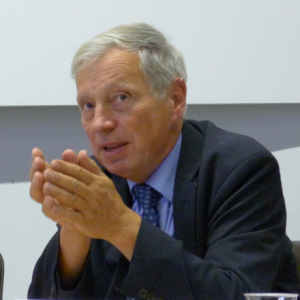The long road to a Global Compact on Refugees

MIchel Veuthey,chief editor of Diplomatie Humanitaire website
03/15/2017.On 19th September 2016, a Summit of Heads of State and Government (“High-level Plenary Meeting on Managing the Mass Displacement of Refugees and Migrants”) adopted a “New York Declaration on Refugees and Migrants” which calls for promoting a more equitable sharing of the burden and responsibilities for the reception of refugees, as well as improving humanitarian and development assistance to the countries most directly affected, as well as a set of measures to address Mass movements and protracted refugee situations and to ease red tape in order to speed up admissions procedures and to increase the diversity of remedies available to refugees for admission or resettlement in third countries and And to open up their labor market to refugees.
On Monday, 13 March 2017, in Geneva, the UNHCR’s Assistant High Commissioner for Protection Volker Türk, began by announcing an IGAD (Intergovernmental Authority on Development) in Nairobi on sustainable solutions for Somali refugees and to inform Permanent Missions and other interested parties of the consultations to be held this year, particularly in Geneva, New York and Vienna, to conclude on 6 and 7 December 2017, In Geneva, during the High Commissioner’s High-level Dialogue, to discuss what will constitute the “zero draft” of the “Global Compact”, to be published in February 2018.
This timeline should not suggest that the path is set for the adoption of the “Global Refugee Compact . Several host countries (including Jordan, Lebanon, Pakistan and Kenya) stressed the need for burden sharing by the international community. Others, like Egypt, recalled the need not to call into question the acquis of the 1951 Convention. But the main causes of these refugee movements were not mentioned in this first consultation. And yet these are the causes of these exiles and exoduses which should be examined as a matter of priority. While some are foreseen in the 1951 Convention as armed conflicts, persecutions and human rights abuses, others are not: lack of rule of law, natural disasters, climate change, and economic imbalances.
In New York, on 19 September 2016, the United Nations High Commissioner for Human Rights, Zeid Ra’ad Al Hussein, was outraged:”The bitter truth is, this Summit was called because we have been largely failing. Failing the long-suffering people of Syria, in not ending the war in its infancy,”
The negotiations that will resume in Geneva on March 23 on Syria as possible prospects of Israeli-Palestinian dialogue and more generally the resolution of the conflicts in Iraq would be the best answers to the problem of the refugees, as also the stabilization of the situation around Lake Chad, Libya, South Sudan and Somalia, as well as in Afghanistan and Myanmar. The violence that goes on despite the peace accords in Colombia, Honduras and El Salvador and the murderous clashes associated with drug traffickers in Mexico also force people to uproot themselves and their families from their homes.
Another obstacle to the negotiation and implementation of the Global Compact on Refugees would be the massive reduction announced on 14 March of United States contributions to the United Nations. These budget cuts could challenge the UN, its multilateral diplomacy forums, and its humanitarian and peacekeeping operations on the ground. Thus, as diplomats meet to consider the adoption of a Global Compact on Refugees, the entire humanitarian response and conflict resolution system could be called into question. It is also more broadly the legal and institutional achievement stemming from the traumas of the Second World War that is fragile or even attacked head on: the Charter of the United Nations of 1945, the Nuremberg and Tokyo Judgments, the Universal Declaration of Human Rights The 1948 Convention, the 1948 Convention against Genocide, the 1949 Geneva Conventions on the Protection of War Victims, the 1951 Refugee Convention, the 1954 Convention on the Protection of Cultural Property, not to mention Of the Treaty of Rome, whose 60th anniversary is celebrated on 25 March.
It involves governments, international organizations, humanitarian actors, NGOs, the private sector, local communities, religious leaders, artists, academics, The Global Compact on Refugees should not be used as an additional text but as a genuine means of preventing and halting these massive refugee movements and, in the meantime, of humanizing their treatment through international cooperation.
In April, consultations should begin in Geneva, which should lead to the adoption of a “Global Compact on Migrants” in 2018 or 2019, which will also call for an overall effort and a broad coalition of actors to face analogous challenges
Michel Veuthey Deputy Permanent Observer of the Order of Malta at the U.N. in Geneva
Geneva
Related Articles
The World Humanitarian Summit will meet in Istanbul on 23 and 24 May 2016
The World Humanitarian Summit will meet in Istanbul on 23 and 24 May 2016.
Yves Gazzo : Some thoughts on migration
2017. Nowadays we tend, in Europe, in France, simple citizens or political leaders, to comment, to dissert, to oppose, on the theme of human migrations.
Eritrea and the increasingly multifaceted challenges in the Horn of Africa
12/02/2017. The well-understood humanitarian aid can not be put in place in the future provided that “soft power” outweighs the ” warmonger “






